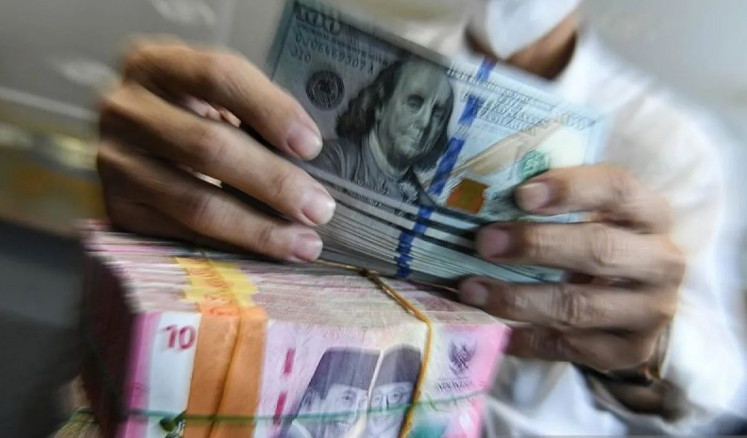Popular Reads
Top Results
Can't find what you're looking for?
View all search resultsPopular Reads
Top Results
Can't find what you're looking for?
View all search resultsHealth Minister Budi seeks to curb outbound medical tourism
Indonesians spend hundreds of millions of US dollars a year in medical treatment abroad, according to a 2009 estimate. The country wants to bring that spending home.
Change text size
Gift Premium Articles
to Anyone
H
ealth Minister Budi Gunadi Sadikin said on Monday that ongoing healthcare system reforms were expected, in part, to reduce the number of citizens who opted to travel abroad for medical treatment.
He said the reforms included increasing hospital bed numbers, especially in eastern Indonesia, and improving the quality of medical services and equipment.
"[This is] so that we will not have 600,000 Indonesians going to [other] ASEAN countries just to have medical check-ups," he said, citing PricewaterhouseCoopers (PwC) data.
The government has long sought to curb outbound medical tourism, which costs the country hundreds of millions of dollars annually in lost business opportunities, according to a 2009 report by research and consulting firm Frost and Sullivan.
The consultancy estimated that in Singapore and Malaysia alone, Indonesians spent S$800 million (US$585.77 million) and RM160 million ($37.97 million) per year, respectively, for healthcare over the preceding three years.
Many Indonesians turn to neighboring countries like Singapore for treatment, including high-profile figures such as senior corruption investigator Novel Baswedan and Kristiani "Ani" Herrawati, the late wife of former president Susilo Bambang Yudhoyono.
Read also: Rich Indonesians spend big on overseas medical expenses
Budi said the government would simplify regulations to allow foreign health professionals to work more easily in Indonesia and to allow foreign hospital operators and investors to build medical facilities in the country.
He added that the government would develop additional community health centers (Puskesmas) in 171 subdistricts and improve their capacity to offer prenatal care and screen for stunting and life-threatening diseases.
“We will increase maternity checks for all mothers and babies from only four times during the pregnancy to six times,” said Budi. “We will supply ultrasound devices to all puskemas. We realize many babies die in Indonesia because we only have 2,000 ultrasound devices for 10,200 puskemas.”
The reforms are expected to open new cooperation and investment opportunities in the country for foreign businesses, especially in the provision of testing and screening devices, as well as medical reagents, according to the minister.
Coordinating Maritime Affairs and Investment Minister Luhut Pandjaitan previously said the government planned to increase the local content (TKDN) requirement for pharmaceutical products to 55 percent and prioritize locally sourced products in the state’s procurement of medical equipment to ensure that more of it was being manufactured domestically.
Read also: Indonesia threatens tariffs, scaled back imports to spur domestic health industry










